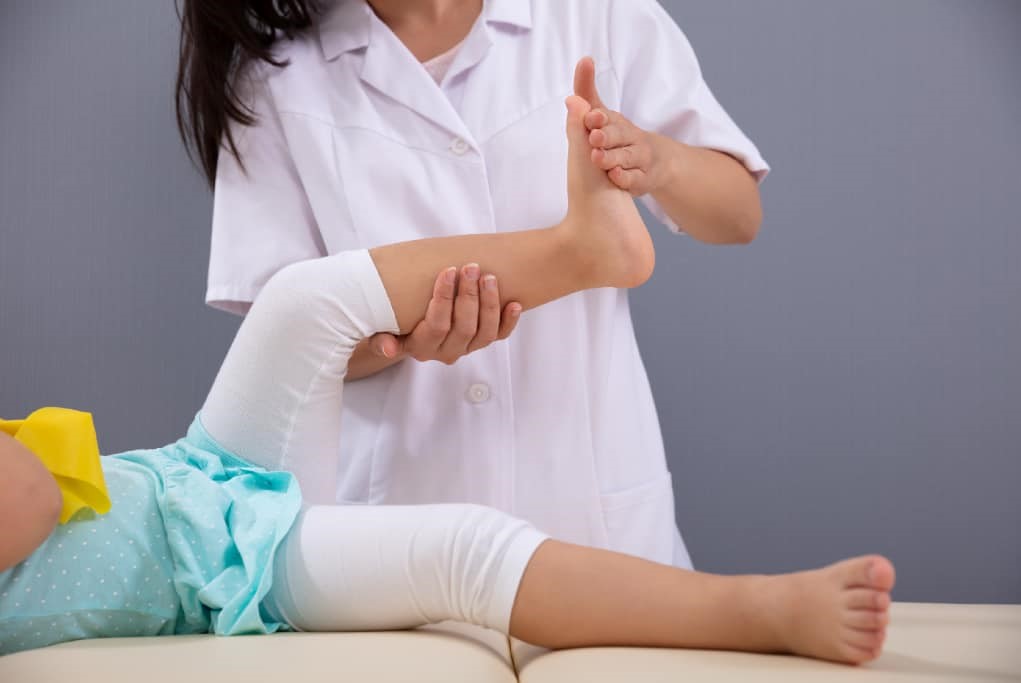 During Orthopaedic Research U.K.’s popular online courses for paediatric orthopaedic physiotherapists, it became obvious that there was a lot of interest in the sub-specialties from clinicians with highly specialised caseloads. In response ORUK is launching the Specialty Series of intensive and focused online courses devoted to particular areas of clinical practice. The first online series was attended by physiotherapists with a particular interest in neurodisability, and received outstanding feedback. As a result, there are plans for two more online series in 2022: a summer course devoted to MSK paediatric physiotherapists and a winter course focused on paediatric feet.…
During Orthopaedic Research U.K.’s popular online courses for paediatric orthopaedic physiotherapists, it became obvious that there was a lot of interest in the sub-specialties from clinicians with highly specialised caseloads. In response ORUK is launching the Specialty Series of intensive and focused online courses devoted to particular areas of clinical practice. The first online series was attended by physiotherapists with a particular interest in neurodisability, and received outstanding feedback. As a result, there are plans for two more online series in 2022: a summer course devoted to MSK paediatric physiotherapists and a winter course focused on paediatric feet.…
Read more of this article
MSK & Arthritis News
Why we’re talking about strength
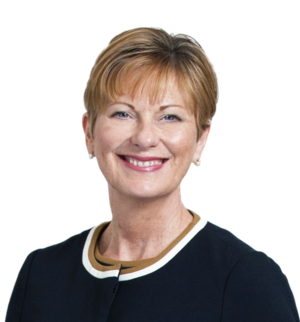 by Karen Middleton, chief executive of the Chartered Society of Physiotherapy
by Karen Middleton, chief executive of the Chartered Society of Physiotherapy
The chief medical officer’s recommendation to strengthen on at least two days of the week is sometimes referred to as ‘the forgotten guideline’. It is frequently overlooked in favour of its more aerobic activity-based cousin, not least by healthcare professionals. As a consequence, too few people meet the guideline despite it being critical for quality of life and particularly for people living with a long-term condition.
The pandemic, which brought high levels of inactivity during lockdowns and other changes in behaviour, has exacerbated what is becoming known in healthcare circles as ‘the deconditioning challenge’. …
Read more of this article
Integration: It takes time to turn a tanker
 On 11 February a policy paper, Health and social care integration: joining up care for people, places and populations, was published. BestMSK Health with its focus on cross-system, whole-pathway working including prevention seems to me to embody everything the White paper is talking about. I was pleased to see that it includes a commitment to improve pathways for MSK, but there is so much more to integration and MSK health than that. Here’s how I see the principles of the integration White paper playing out in MSK.…
On 11 February a policy paper, Health and social care integration: joining up care for people, places and populations, was published. BestMSK Health with its focus on cross-system, whole-pathway working including prevention seems to me to embody everything the White paper is talking about. I was pleased to see that it includes a commitment to improve pathways for MSK, but there is so much more to integration and MSK health than that. Here’s how I see the principles of the integration White paper playing out in MSK.…
Read more of this article
ESCAPE-pain winter newsletter

Enabling Self-management and Coping with Arthritic Pain using Exercise (ESCAPE-pain): winter newsletter
Orthopaedic Research UK has been thrilled to see so many ESCAPE-pain classes restarting or coming on board, despite the challenges posed by the pandemic.
ORUK has especially enjoyed receiving participant feedback showing how the programme is helping people to improve their quality of life. Please read more programme updates in the latest newsletter which has information for people living with joint pain as well as information for providers.
Calling all rheumatology services!
 NASS has launched the search for the third round of teams to join the Aspiring to Excellence programme. The successful applicants will have the opportunity to plan and implement projects aimed at reducing diagnosis times for people with axial SpA.
NASS has launched the search for the third round of teams to join the Aspiring to Excellence programme. The successful applicants will have the opportunity to plan and implement projects aimed at reducing diagnosis times for people with axial SpA.
Aspiring to Excellence is an award programme designed to encourage and recognise service improvement in axial SpA care. It is open to rheumatology services across the UK. The programme is run by NASS in partnership with BritSpA and the NHS Transformation Unit.…
Read more of this article
What do patients value in healthcare services?
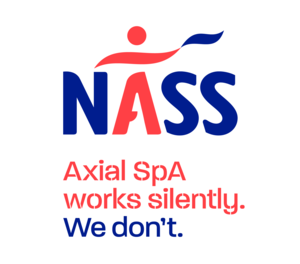 NASS is working on a piece of research with Headstrong Thinking. They want to know what people value in their health services, from the time they first visit a health professional with symptoms of axial SpA, to long term management of their condition.
NASS is working on a piece of research with Headstrong Thinking. They want to know what people value in their health services, from the time they first visit a health professional with symptoms of axial SpA, to long term management of their condition.
NASS wants to reach as many people as possible at every point of their journey. If you are treating someone with, or that you suspect might have axial SpA, please do share the Patient Values Survey with them.
JIA Awareness Week: 13 – 17 June 2022
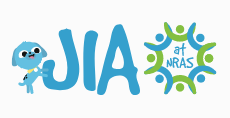 After the success of RA Awareness Week, this year NRAS is having its first JIA Awareness week #SameJIADifferentDay, which will run from the 13th to 17th June 2022.
After the success of RA Awareness Week, this year NRAS is having its first JIA Awareness week #SameJIADifferentDay, which will run from the 13th to 17th June 2022.
When NRAS staff speak to parents, children and adults with JIA, the same conversation comes up: how can we get people to understand that some days people living with JIA can do things like go for long walks or play football, when other days they really struggle to get out of bed or climb the stairs at work?…
Read more of this article
Ailsa Bosworth on the EULAR PARE Podcast
 NRAS’s National Patient Champion, Ailsa Bosworth MBE, talks about SMILE-RA on the EULAR PARE podcast. SMILE-RA is a self-management e-learning programme for people with rheumatoid arthritis, a programme which was one of the winners of the Best Practice Fair at the EULAR PARE Conference.
NRAS’s National Patient Champion, Ailsa Bosworth MBE, talks about SMILE-RA on the EULAR PARE podcast. SMILE-RA is a self-management e-learning programme for people with rheumatoid arthritis, a programme which was one of the winners of the Best Practice Fair at the EULAR PARE Conference.
You can listen to the episode, “Meet a PARE Best Practice Fair winner – NRAS” of the podcast on Apple Podcasts, and also find the EULAR PARE Podcast on Spotify.
Diploma revision course
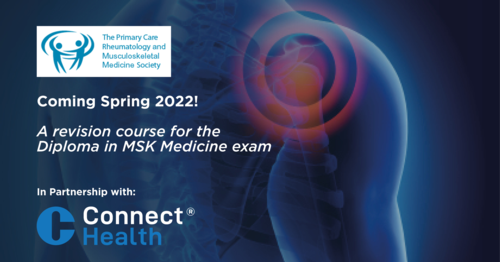 The revision course for the FSEM PCRMM diploma in MSK Medicine
The revision course for the FSEM PCRMM diploma in MSK Medicine
Booking is now open for this course, which will be delivered online on the 5 March and 2 April 2022; it is aimed specifically at those preparing to sit the diploma and as such will be based around the diploma syllabus. The course will be in the format of two study days and an online Learning Hub. Diploma resources and presentations will be made accessible, where relevant, as well as presentation recordings from the study days. …
Read more of this article
Outcomes from AHP student placements
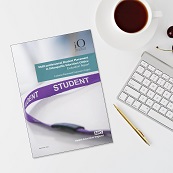 Innovative multi-professional student placement project shows positive outcomes
Innovative multi-professional student placement project shows positive outcomes
A pilot in Allied Health Professions student placements, funded by Health Education England and facilitated by the Institute of Osteopathy, has shown how an innovative interprofessional approach can deliver positive outcomes for students and educators, ultimately facilitating improved patient outcomes through the delivery of multi-disciplinary care.
Read more on the iO website.




